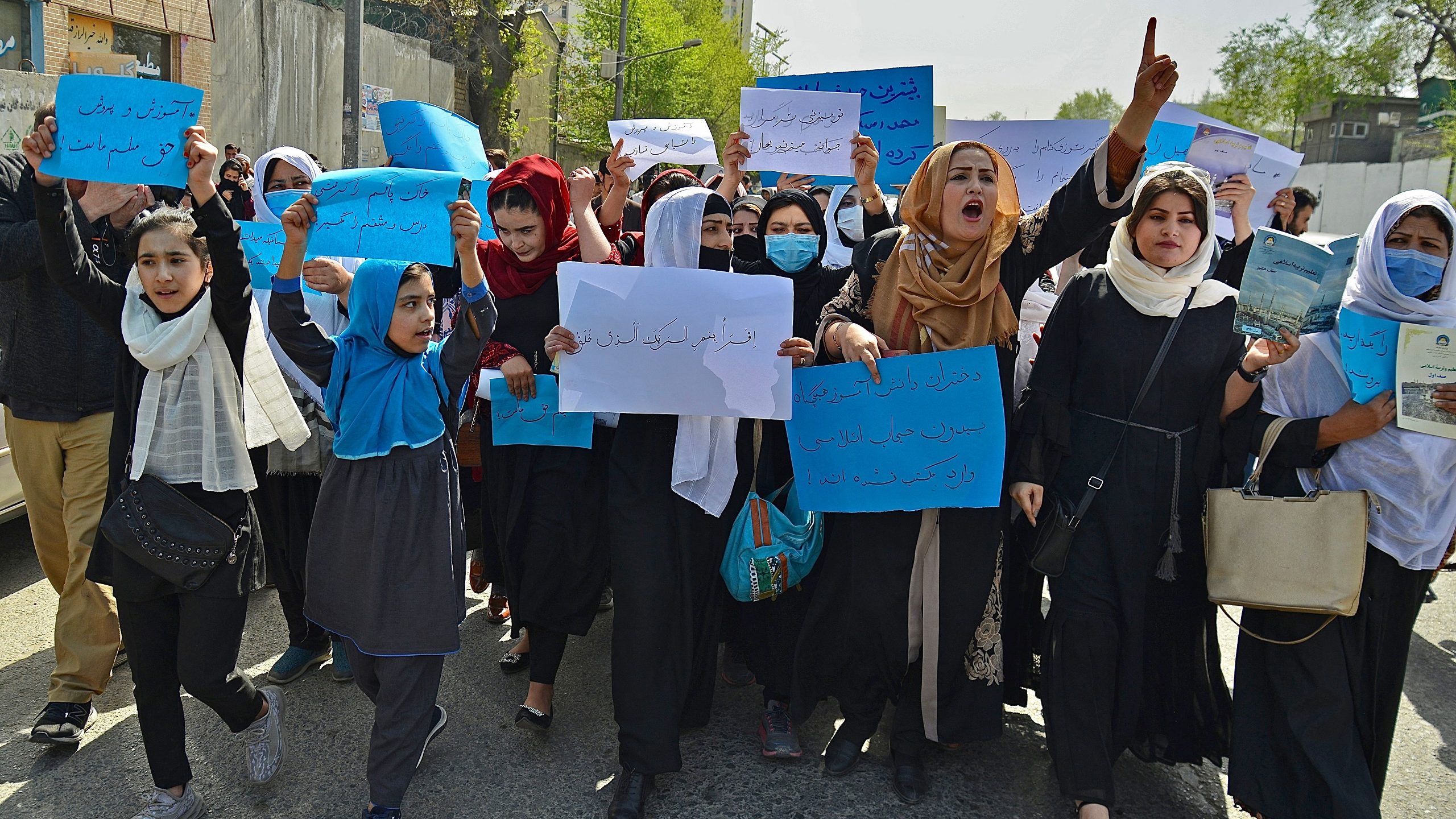The US Drops Economic Talks After Taliban Bans Girls From High Schools
Millions face hunger as Islamists seek international aid, recognition
The US canceled talks with the Taliban on economic issues that were to take place in Qatar after the group last week reneged on its decision to reopen girls’ high schools.
The talks were to be held Saturday and Sunday in Doha, and the sidelines of a conference, and their goal was to address key economic issues in Afghanistan, where millions of people face increasing hunger.
A US State Department spokesperson told Reuters, “Their decision [to keep girls from attending high school] was a deeply disappointing and inexplicable reversal of commitments to the Afghan people, first and foremost, and also to the international community.”
Prof. Steven Wright of Hamad Bin Khalifa University in Doha, an expert on US foreign policy and international relations, told The Media Line it is time for the Taliban to make critical choices.
“This is the turning point in terms of whether they will pick the path of isolation or the path of engagement [with the international community] and a gradual change of behavior,” he said.
The US move is meant to send a strong message to the Taliban that international aid, and recognition, require providing for girls’ education and giving up on some of the policies that the Islamist movement has followed since its founding.
“This is really setting a clear red line on what is needed from them in order to have recognition and receive aid,” Wright said.
Hizbullah Khan, an Afghan freelance journalist who has covered war and terrorism in the country since 2014, told The Media Line the US was acting because the Taliban were violating promises they made during the Doha talks held before the US withdrew from Afghanistan last year.
Wright doesn’t believe that dropping the economic talks will be enough on its own to persuade the Taliban to reverse course. Rather, he sees it as a spark for a series of moves by the international community with the same intent.
“I think this eventually will change the Taliban’s mind on the subject, but it may not be immediate,” he said.
Khan added that canceling the planned talks was part of the US pressure tactics.
“I think that the US has the power to change the mindset and the attitude of the Taliban. There are many options to create pressure on them,” he said. “Later the US could impose economic sanctions on the Taliban. And after that, they can even bring this issue to the United Nations, where they can propose a motion to achieve a consensus in the UN to declare the Taliban an illegitimate government.”
Isolation could have a huge impact on the Taliban.
“The country [Afghanistan] cannot live in such isolation, not by maintaining this position. They are facing a humanitarian crisis; in order for this reality to be combated, it will definitely require some clear decisions in terms of how they act internally,” Wright said.
Khan, who lives in Kandahar and has kept moving through the country in order to not to be tracked and punished by the Taliban for being a journalist, told The Media Line, “Afghanistan is suffering an unprecedented hunger crisis; people are eating grass and leaves. I have seen many people who tell me that they haven’t eaten for five, six, or seven days.”
Around 23 million out of Afghanistan’s approximately 40 million inhabitants are experiencing acute hunger, and 95% of the population is not eating enough food, according to the United Nations.
Wright stressed that the Taliban’s internal divisions are one of the factors preventing it from acting effectively.
“I think this is part of the problem: There are different groups which are not acting in a unified manner. For those factions to come together is going to take time,” he said.
Khan said economic aid should come in but not through the Islamists.
The US should not punish all 40 million Afghans for the crimes of the Taliban, he said. “If you give economic assistance to the Taliban, they will invest that assistance in making their regime strong. It won’t get to the poor people,” he continued.
“The US can sustain and provide economic assistance through the UN humanitarian organizations and other international organizations,” Khan said.


